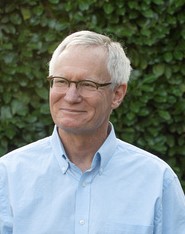John Morrison, whose poem “Fourteen Rules for a Game Called Ghost” appears in SRPR Issue 46.1, traces emplacement away from territory and into strange linkages.
I hope none of what I write ever comes back to jinx me, as I write this piece about a ghost poem and emplacement.
Do you ever consider your poetic lineage? It’s kind of a poet’s parlor game, to trace the mother and father poets who have raised you in your art. In fact, you can find in The Collected Books of Jack Spicer, edited by Robin Blaser, a fun but potentially profound exercise Spicer came across in a Robert Duncan workshop, a worksheet designed as a grammar school-style mimeographed questionnaire. Blaser refers to a key item in the questionnaire as the “tree or constellation of poetry” where, in either a hierarchical or a spiral fashion, you identify your influences, poetic and otherwise. There is no room on the constellation worksheet for “place.” Yet, the poems of my parental poets—most notably Richard Hugo and James Wright—fed on the bread and butter of place, which, honestly, was a continuation of wrenching American poetry away from an elevated diction and demeanor.
Just so you know, I grew up outside in the hills of Northern California, and though I schooled in the deep South and settled in the Pacific Northwest, those hills and the oak savannah are my home—and often my dream—landscape.
The truth is, I can write “place poems” all day long. The formula is coded right into my hand. What’s compelling about the poetics of emplacement is how it asserts place as foreground but only as a point of departure for the imagination: a grounding, so we are free to imagine and invent. The challenge of place poetry, and often a challenge place poetry can fail, is to reach beyond representation. If the poem remains simply about place without that place arriving at metaphorical significance, the poem will remain only flatly two-dimensional. When place becomes metaphor, however, the poet and reader arrive in new territory, a psychic dimension.
For me, this is what T.S. Eliot meant by the objective correlative, and is what Rilke writes about when traveling east into the plains of Russia, how the outer landscape became the inner landscape. (Don’t make me find that passage—I did not make it up!)
By the calendar, my mother passed away a while ago, but for me, it all just happened—that morning, that noontime, how she let go and how we shared our loss just after. In my poem, “Fourteen Rules for a Game Called Ghost,” place and imagination collide, like banging together two rocks for sparks. In many ways my mother’s death cast me into a childhood loneliness again. I am, let’s say, twelve, and it’s like I’ve run away from home, again, for all of two hours and no one even notices. That’s good and invisible! The poem/game includes the cruelty of children and the inviolable, arbitrary rules that shunt us away from each other. For me, this is true in the game and in the truth of my mother’s disappearance. Margaret Mary Weber was a gem. You would have liked her.
To find a writing trance and surprise myself, I anchor in what I know. The creek mentioned in the poem? Wild Horse Creek, and I can take you there if development and climate disruption haven’t ripped out the cottonwoods and dried the springs up on Twin Sisters. The dog? Bucky. I can introduce you, or could have. Spiders? I know where they stretch webs from oak to oak. See? This really is sounding like a two-hour runaway.
The poems I’m writing right now begin with place and as quickly as possible slip away from the known on the way to metaphor, which is often just another word for “mystery” to me. It strikes me that my current poems are about exploring a new, personal mythology. No, I’m not sure what that means. In the case of “Fourteen Rules for a Game Called Ghost,” the slipping from the known is for forever. Though virtually every line has a concrete place trigger, I’m pretty sure the reader would neither know nor care so I don’t either, which means the allegiance of the composition shifts quickly from the “facts.” If I’m lucky, music and surprise and resonance will be enough to carry the poem. This is the promise of “emplacement”: those concrete borders or boundaries given by place that all of us have are just the markers we pass on the way to new possibilities and discoveries. And that’s fun. And if I have the chance to grieve for my mother for the extent of a poem, that counts as meaningful, too.

John Morrison’s second book of poetry Monkey Island was recently published by redbat books. His first book, Heaven of the Moment, published by Cloudbank books, was one of five finalists for the Oregon Book Award for Poetry. His work has appeared in the Beloit Poetry Journal, Cimarron Review, Poetry Northwest, Rhino, and elsewhere. He teaches as an Associate Fellow for the Attic Institute and is an associate editor for the fabulist journal of literature, Phantom Drift.
You can order a physical copy of 46.1 on our website, or purchase a 2-year subscription.
And if you want to keep up with us on social media, you can follow us across
Instagram: @srpr_news
Twitter: @srpr_news
Facebook: SRPR (Spoon River Poetry Review)



